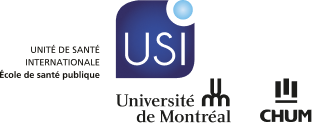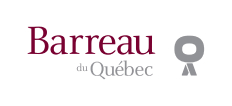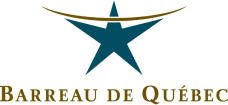2022
2021
Income
Donor contributions to programs
$13,621,440
$11,637,693
Contributions in the form of services provided
485,993
924,345
Private funding
178,283
237,225
Public funding
419,291
1,172,776
Other
34,349
14,236
14,739,356
13,986,275
Menu
for
justice
to be done
20 Years of Solidarity and Commitment
As we publish this report, Lawyers Without Borders Canada (LWBC) celebrates its 20th anniversary. That’s right, it’s already been 20 years!
Twenty years spent fighting to help the most vulnerable realize their human rights…
Striving to increase access to justice and legal representation;
Sharing the knowledge and expertise of legal practitioners worldwide;
Elevating the law as an instrument of change and progress;
Contributing to peace and reconciliation;
Working hard to establishing the truth and seek justice in emblematic legal cases of crimes against humanity, war crimes, genocide, gender-based violence, torture, extrajudicial killings, enforced disappearances, and other serious human rights violations;
Building a world in which fundamental freedoms and human rights as defined by international law are respected, enforced, and promoted, and a world in which justice is served on an independent and equitable basis;
Inspiring and training actors of change, capitalizing on the younger generations.
Twenty years of combatting impunity, corruption, discrimination, and inequalities…
Of victories before national and international jurisdictions;
Of partnerships and collaborations with organizations worldwide;
Of advocacy and mobilization to affirm the rule of law and respect for judicial guarantees;
Of sexual and gender equality, diversity, and inclusion;
Of volunteer cooperation;
Of international solidarity;
Of commitment.
Human for Human Rights
Twenty years on, LWBC is now recognized for its tangible achievements in the field.
These outstanding results are the fruit of the relentless work of thousands of people. On the frontline stand the most vulnerable groups and victims of human rights violations who have mustered incredible courage to seek the path to justice, and exceptional generosity to share their journey with us.
Praise also goes to LWBC’s partner organizations with whom we have had the extraordinary privilege of working in Latin America, the Caribbean, in Africa, and here in Canada. LWBC’s expertise, best practices, theory of change, and methodology are all the product of the lessons learnt with our partners these past two decades. And that’s precisely the idea behind what we know as “international cooperation” – helping each other better defend human rights by sharing teachings and best practices.
LWBC’s success and performance are also largely due to all those who are or have been a part of our great team: staff members, our board of directors, and people at all levels of the organization; participants in our volunteer cooperation programmes; volunteers based in Canada and abroad in project countries; people who have advised us, stood by us as allies and showed us the way.
And not to forget of course our financial partners, donors, those who believe in us and in our mission, and who express their support in the form of financial or service contributions, and without whom we wouldn’t be where we are today, given that the assistance we provide to beneficiaries in the field has always been free of charge.
We owe this 20th anniversary to them, and we owe it to you. Which is why we’re celebrating together. As a way of thanking you so very deeply, and renewing our common commitment.
Following Through in 2021-2022
Certainly one great way of celebrating is for LWBC to do what it does best – persevere in its mission, building on 20 years of achievements and well aware of the tough challenges ahead.
This annual report covers activities from April 1, 2021 to March 31, 2022, and demonstrates how LWBC did indeed pursue its positive momentum, leveraging the law and legal mechanisms as instruments of change to secure tangible results in favour of greater access to justice and respect for the human rights of those in vulnerable situations.
The 18 projects we implemented in 9 countries over the past year – with a higher yearly budget amounting to $15 million – directly impacted the lives of 121,172 persons in vulnerable situations, including 4,740 victims who received legal support. Over 100 high-profile cases of human rights violations were brought before international courts and jurisdictions.
Figures aside, what counts is the difference our efforts make in the lives of the most vulnerable, the most impoverished, the most marginalized, and the most discriminated against. Those with whom and for whom we work. Those who need access to justice the most, those who need to see results in order for their human rights to be realized.
We’ve summarized these achievements in this year’s annual report. However, our report is just that: a summary. A summary of great victories, progress, and changes against a backdrop of fascinating, moving stories. To delve deeper, and see and read more, we encourage you to head over to our numerous media platforms (including our website and our Facebook, Twitter, LinkedIn, and Instagram pages) and to follow us.
We hope you enjoy reading, watching, and listening to LWBC’s success stories! One thing that’s for sure is that we’ve plenty to do together over the next 20 years before we celebrate LWBC’s 40th anniversary!
Delia Cristea
Pascal Paradis

Delia Cristea, President of the Board of Directors
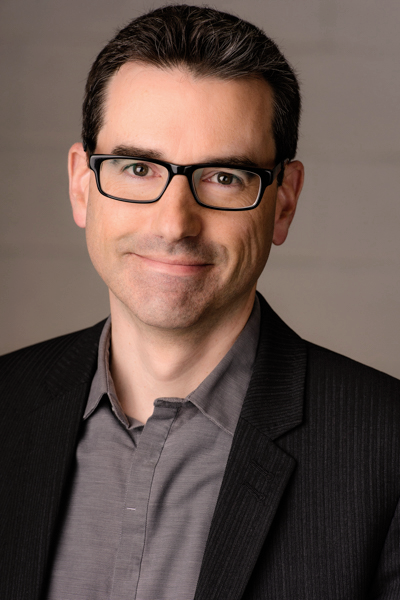
Pascal Paradis – Executive Director

Click on the shapes
for more information
18 international cooperation projects
on our team (Argentina, Austria, Benin, Bolivia, Cameroon, Canada, Chile, Colombia, Comoros, Congo, El Salvador, Ecuador, France, Guatemala, Guinea, Haiti, Honduras, Italy, Madagascar, Mali, Mexico, Peru, Rwanda, Serbia, Spain, Switzerland, the United States, and Venezuela)
Over 100 high-profile cases of human rights violations brought before international courts and jurisdictions
More than 105,805 vulnerable individuals directly or indirectly benefiting from our actions or our partners’ actions
Over 17,881 victims supported, including through direct legal aid and judicial assistance, from LWBC or LWBC partners
round the world (Bamako, Bogotá, Guatemala City, Quebec City, Port-au-Prince, San Salvador, and Tegucigalpa), and 3 regional offices in Colombia (Medellín, Bucaramanga, and Pasto)
of intervention (Canada, Benin, Burkina Faso, Colombia, El Salvador, Guatemala, Haiti, Honduras, Mali)
and interns deployed nationally and abroad, comprising 86 women and 48 men
135 partners supported and empowered
18 volunteer cooperation mandates
projects
18 international cooperation projects
nationalities
on our team (Argentina, Austria, Benin, Bolivia, Cameroon, Canada, Chile, Colombia, Comoros, Congo, El Salvador, Ecuador, France, Guatemala, Guinea, Haiti, Honduras, Italy, Madagascar, Mali, Mexico, Peru, Rwanda, Serbia, Spain, Switzerland, the United States, and Venezuela)
high-profile cases
Over 100 high-profile cases of human rights violations brought before international courts and jurisdictions
vulnerable individuals
More than 105,805 vulnerable individuals directly or indirectly benefiting from our actions or our partners’ actions
victims
Over 17,881 victims supported, including through direct legal aid and judicial assistance, from LWBC or LWBC partners
offices
round the world (Bamako, Bogotá, Guatemala City, Quebec City, Port-au-Prince, San Salvador, and Tegucigalpa), and 3 regional offices in Colombia (Medellín, Bucaramanga, and Pasto)
countries
of intervention (Canada, Benin, Burkina Faso, Colombia, El Salvador, Guatemala, Haiti, Honduras, Mali)
employees
and interns deployed nationally and abroad, comprising 86 women and 48 men
partners
135 partners supported and empowered
mandates
18 volunteer cooperation mandates





Click on one of the dots
on the map to find out more.

Projects:
Strengthening Access to Justice and Strategic Litigation in Emblematic Cases
LWBC-supported initiatives have allowed women, girls and other vulnerable individuals to improve the effectiveness of their actions in the fight against sexist and sexual violence, discrimination, and impunity. LWBC’s support helped them take matters into their own hands and make their rights a reality, increase their autonomy over their lives, and transform power relationships.
Peace and Reconciliation
With the help of LWBC and several partners based in Mali, women, children and other individuals in vulnerable situations were able to participate more in decisions relating to the reconciliation process and contributed to peacebuilding efforts:
Young Legal Experts Defending Human Rights
A new generation of young human rights lawyers is emerging thanks to the participation of 16 students, including 6 women, in the 6th edition of the “À vous maître” moot court competition organized by the “Tribune des jeunes pour le droit au Mali” (TRIJEUD) with support from LWBC.
Publications:
News and articles
2022. Dix organisations maliennes se mobilisent pour concrétiser la justice et la paix au Mali (in French)
2022. Les jeunes déplacé-e-s internes de plus en plus impliqué-e-s dans le processus de justice transitionnelle au Mali (in French)
2021. Les réparations pour les survivantes de violences sexuelles liées au conflit au Mali au centre d’une table ronde (in French)
2021. La suite de la Commission vérité, justice et réconciliation actuellement discutée à Bamako (in French)
2021. La CVJR fera entendre la voix des sans-voix pour une quatrième fois (in French)
2021. Dix organisations maliennes se mobilisent pour concrétiser la justice et la paix au Mali (in French)
2021. Les victimes des multiples crises au Mali obtiendront réparation (in French)
2021. Réécrire l’histoire du Mali, une victime à la fois (in French)
2021. « J’ai besoin de savoir si mes enfants sont morts ou vivants » (in French)
2021. La CVJR prête à mettre en lumière les cas de disparitions forcées au Mali (in French)
2021. Il est urgent de mener une enquête judiciaire indépendante sur les frappes à Bounty (in French)
Partners:
Volunteer cooperation participants: 4.

Projects:
Peace and Reconciliation
Victims of serious crimes committed in the context of the internal armed conflict, and in particular women and girls, indigenous, Afro-Columbian, and displaced communities, received better access to justice, truth, and reparation mechanisms as part of peacebuilding efforts.
Combatting Human Trafficking
The actions of the Office of the Ombudsperson (Defensoría del Pueblo) and organizations involved in the fight against human trafficking have improved.
Strengthening Access to Justice and Strategic Litigation in Emblematic Cases
Colombian civil society organizations have contributed to improving access to justice and fighting impunity by strengthening reporting and prosecution of crimes committed against people in vulnerable situations, particularly women and girls who are victims of gender-based violence:
Publications:
Legal publication
2021. El delito de la trata de personas y la atención integral a víctimas, con enfoque de género (in Spanish)
News and articles
2022. Se clausura el diplomado “Género, justicia transicional y construcción de paz” organizado por Abogados sin Fronteras Canadá y la Universidad Industrial de Santander (in Spanish)
2022. Abogados sin fronteras Canadá reitera su preocupación por la seguridad de las personas en proceso de reincorporación a la vida civil firmantes del Acuerdo Final de Paz (in Spanish)
2022. Avocats sans frontières Canada exprime son inquiétude face aux menaces qui pèsent sur la Juridiction spéciale pour la paix en Colombie (in French)
2021. La communauté afro-descendante d’Anchicayá en Colombie reçoit le «Prix national des droits humains» (in French)
2021. Nous parions sur la paix en Colombie (in French)
2021. Des conflits qui unissent les femmes de la Colombie et du Venezuela (in French)
2021. ASFC condamne un usage abusif de la force en réponse aux manifestations en Colombie (in French)
2021. ASFC presenta aportes desde el derecho internacional a la Corte Constitucional (in Spanish)
2021. Non à la traite de personnes en Colombie (in French)
Partners:
Volunteer cooperation participants: 5.

Projects:
Protecting Legal Experts Defending Human Rights
With support from LWBC, civil society organizations in Guatemala have strengthened their capacities to respond to threats and violence against legal professionals who defend human rights, thereby contributing to improving their safety and well-being.
Strengthening Access to Justice and Strategic Litigation in Emblematic Cases
Access to justice for indigenous women and girls has improved. They were themselves able to exercise their rights through legal empowerment to bring an end to gender-based violence and other rights violations.
Civic Engagement in Favour of Human Rights
In an effort to contribute to changing mindsets and behaviours through awareness-raising and advocacy actions, the “Asociación Generando Equidad, Liderazgo y Oportunidades” (ASOGEN), one of LWBC’s partners, asked before the UN Committee on the Rights of Persons with Disabilities that Guatemala respect and guarantee the rights of disabled women and girls, including by providing them with access to appropriate sexual and reproductive health services.
Publications:
News and articles
2022. Organizaciones Internacionales Rechazamos Criminalización de la abogada Leyli Santizo y la ex Fiscal Siomara Sosa (in Spanish)
2022. Des progrès judiciaires significatifs pour deux jeunes Guatémaltèques autochtones (in French)
2022. Alta Verapaz: importantes avances en los procesos judiciales de tres niñas (in Spanish)
2021. L’accès à la justice renforcé pour les femmes autochtones du Guatemala (in French)
Partners:
Volunteer cooperation participants: 1.

Projects:
Projects initiated in 2021:
Strengthening Access to Justice and Strategic Litigation in Emblematic Cases
Victims of human rights violations, especially women, minors, and detained individuals, received better legal representation, exercise their rights in court, fight impunity and see justice served:
Young Legal Experts Defending Human Rights
A new generation of human rights actors is in the making, as 52 schoolchildren received training on advocacy techniques and on gender equality, 25 law students participated in training on writing academic theses on human rights-related topics, and 9 students received support for academic research projects on the fight against corruption.
17 whistleblowers are now even more actively engaged in the fight against corruption after receiving capacity-building support to identify and expose corruption.
Civic Engagement in Favour of Human Rights
Women actively contribute to mitigating unjustified provisional detention of women and girls by leading advocacy and awareness raising initiatives jointly with seven women’s and feminist civil society organizations in different regions of Haiti.
Awareness was raised on human rights among more than 100,000 people through various channels, including social media, documentaries, cartoons, plays, music, videos, and audio recordings. An episode of the cartoon Lakou Kajou, which was produced as part of the project, was even nominated as a finalist for the Munich Prix Jeunesse International award, which rewards the best children’s television programs around the world.
Publications:
News and articles
2021. Une jeune haïtienne se porte à la défense des personnes en situation de handicap (in French)
2021. La détérioration de la situation des droits humains en Haïti est très préoccupante (in French)
2021. Les racines du mal, près de 30 ans de duvaliérisme en Haïti (in French)
2021. Avocats sans frontières Canada salue la résolution adoptée par la CIDH en faveur de M. Camille Occius et sa famille (in French)
2021. Après Port-au-Prince, des avocat.e.s en région s’initient au litige stratégique de droits humains (in French)
2021. Un an après l’assassinat du bâtonnier Dorval, il faut que justice soit rendue (in French)
Partners
In Haiti
Canadian partners:
Volunteer cooperation participants: 4.

Projects:
Strengthening Access to Justice and Strategic Litigation in Emblematic Cases
Partnering with LWBC, civil society organizations in Honduras have helped establish legal precedents for the effective protection of human rights and the reduction of corruption and impunity thanks to increased access to specialized legal services.
Civic Engagement
Civil society in Honduras is increasingly engaged in protecting human rights, cleaning up the justice system, and improving governance. Matters involving gender-based violence, corruption, corporate obligations with regard to human rights, and the implementation of human rights recommendations issued by international bodies are making headway among members of the public and in the media following awareness-raising activities, public interventions, and campaigns carried out by our partners using the instruments and practical guides we developed together.
Young Legal Professionals Defending Human Rights
A new generation of motivated legal professionals is in the works thanks to LWBC’s internship program “Semillero de Justicia” which has allowed 9 interns, including 6 women, to gain work experience within 7 partner organizations and with LWBC. These young legal practitioners are already working on court cases, and some interns have been hired by the legal teams of partner organizations and firms and by government divisions.
Publications:
Guía para usar las recomendaciones de órganos y mecanismos internacionales, 2022
Documentary: 28 de junio:Vicky vs Honduras (in Spanish)
News and articles
2022. ¿Cuál es la situación de justicia para las muertes violentas de mujeres en Honduras? (in Spanish)
2022. 51 representantes de sociedad civil concluyen Diplomado en Litigio Estratégico y Derechos Humanos en Honduras (in Spanish)
2021. Quel avenir pour la lutte contre la corruption au Honduras ? (in French)
2021. Vicky Hernandez : une décision historique pour la communauté LGBTI d’Amérique latine (in French)
2021. Reconnaissance du peuple Lenca dans l’affaire « Fraude sur le Gualcarque » : un pas vers la justice (in French)
2021. ASFC entrega donación de materiales académicos a Facultad de Ciencias Jurídicas de la UNAH (in Spanish)
Partners:
Volunteer cooperation participants: 3.

Project:
Strengthening Access to Justice
Thanks to the intervention of LWBC and local partners, the fight against cross-border crime – including human trafficking – has been strengthened, and the rights of vulnerable migrants protected:
Civil Society Capacity Building
Following training for 3,662 justice-system actors and members of civil society, including 2,639 women, civil society organizations contributed to improved representation of victims of human trafficking before the courts. Specialized training covered international standards and best practices for fighting human trafficking and sexual exploitation.
Institutional Practices and Regional Cooperation
With support from LWBC, institutional practices and regulatory frameworks have been improved to put an end to cross-border crimes committed against women and other vulnerable migrant populations:
Publications:
Legal publications
2021. Les Survivantes : une approche novatrice en matière de sensibilisation et prévention du phénomène de l’exploitation sexuelle (in French)
2021. Guía de litigio con énfasis en trata de personas:Consejos de un litigante a otros litigantes (in Spanish)
2021. Fichas técnicas sobre modalidades de trata de personas (in Spanish)
2021. Guía para profesionales encargados de realizar entrevistas para la identificación de víctimas adultas de trata de personas en Honduras (in Spanish)
2021. Aspectos penales del delito – Honduras (in Spanish)
2021. Delitos conexos a la trata de personas en Honduras (in Spanish)
2021. Delitos financieros complementarios para la persecución del delito de trata de personas en Honduras (in Spanish)
2021. Construcción de la teoría del caso (in Spanish)
2021. Fichas sobre tipificación del delito de trata de personas : los fines de explotación, los verbos rectores y los medios – Honduras(in Spanish)
Partners:
In Guatemala:
In Honduras:
In El Salvador:
Regional partners:
Volunteer cooperation participants: –

Project:
Strengthening Access to Justice and Litigation in Emblematic Cases
With support from LWBC, justice actors and civil society organizations strengthened their capacity to improve access to justice for victims of gender-based violence and allow them to exercise their rights in a more effective manner:
Publication:
News article
Partners:
Volunteer cooperation participants: 1.

Project:
Currently in its initial phase, the project is implemented by the University of Montreal International Health Unit and the Panzi Foundation in the Democratic Republic of Congo and in Burundi. LWBC’s role in the project consists of providing expert consulting.
The project aims to strengthen the capacities of the Panzi Foundation – an organization that provides assistance to sexual and sexist violence survivors – to fight sexual and sexist violence, to improve sexual and reproductive health and rights, and to support the realization of human rights. In addition, the project aims to provide support to the Panzi Foundation in passing on its expertise in rural areas around South Kivu and in Burundi in an effort to improve access for women, adolescent girls, and children to services that will allow them to exercise their rights.
LWBC’s expertise will be leveraged to analyze the human rights situation in the region targeted by the project, deliver training to service providers to improve the legal and health services for victims of sexist and sexual violence, develop tools that will improve and decentralize legal and judicial services provided by the Panzi Foundation, and strengthen the capacities of relevant stakeholders in the fields of advocacy and communication on sexual and reproductive rights and sexist and sexual violence.
Partners:
Volunteer cooperation participants: –

LWBC commented on and welcomed the release of Raif Badawi on March 10, 2021. Back in 2015, LWBC had worked on his case and prepared and submitted a memoir to the highest Saudi authorities and to the United Nations Committee against Torture in collaboration with the Barreau du Québec and Lavery law firm.
Partners:
Since the Russian invasion of Ukraine, LWBC has been contributing to making the international laws of armed conflict comprehensible for the general public as well as the media. Thanks to funding from the Quebec Ministry of International Relations and La Francophonie, LWBC launched an initiative to support the fight against impunity in cases of sexual and gender-based violence committed during the conflict.
LWBC led a campaign before Canadian authorities urging the Government to pursue Jorge Vinicio Sosa Orantes for his participation in the Dos Erres massacre in Guatemala in 1982. Following a press conference organized in collaboration with the Canadian Partnership for International Justice which attracted strong media coverage, LWBC and Mr. Ramiro Osorio Cristales, one of the only survivors of the massacre, filed a statement signed by 20 human rights organizations demanding that Canada’s Justice Minister revive the Crimes Against Humanity and War Crimes Program. In the meantime, LWBC has partnered with students from Laval University’s International Humanitarian Law Clinic to observe the trials in the proceedings aimed at revoking Jorge Vinicio Sosa Orantes’s Canadian citizenship.
News and articles
Partners:

Project:
Launched in 2021
The PLURIELLES project is an initiative of the consortium between lead organization Santé Monde, LWBC, and the Canadian Cooperation Society for International Development (SOCODEVI). It aims to increase enjoyment of health-related rights by improving the quality of, access to, and demand for appropriate services in terms of sexual and reproductive health and rights for vulnerable and marginalized women and adolescent girls living in Benin, Burkina Faso, and Mali.
Launched in 2021-2022, the PLURIELLES project seeks to achieve three objectives:
Partners:
In Benin
In Burkina Faso
In Mali
Countries where LWBC operates
Countries where LWBC operates
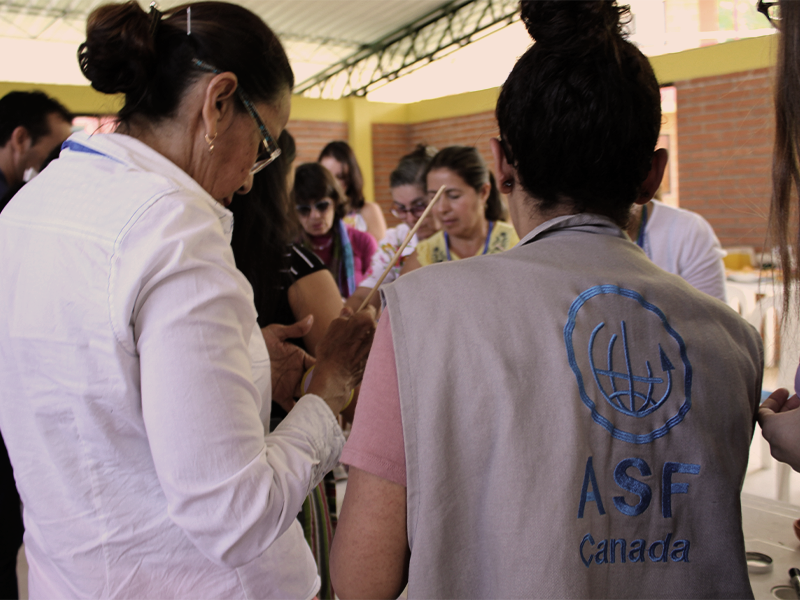

(In French)
Is defending human rights a vocation?
Striving to make human rights a reality is more than a job. It’s a vocation. Find out about six women whose commitment and passion drive them to relentlessly support vulnerable individuals in the hope of making the world a fairer place.
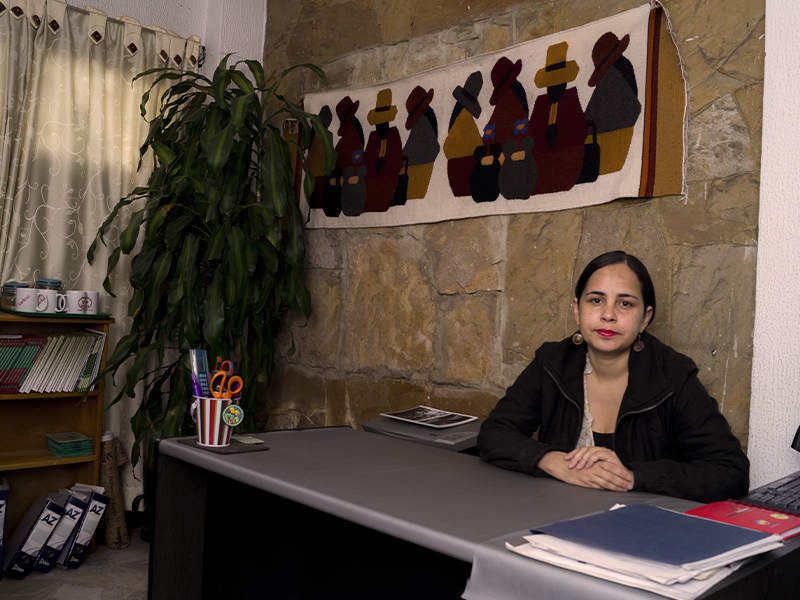

(in English and Spanish, with French captions)
The case of “false positives” in Colombia: Truth has no price
“False positives” is a term that refers to the extrajudicial killing of civilians commissioned by the Colombian authorities to the regular armed forces and police units to artificially augment results in the fight against terror. The victims of the killings were for the greater part indigenous populations living in rural areas and in vulnerable conditions, includingmembers of sexual orientation and gender identity minorities. A tragedy that shook the country. With support from LWBC, Gloria Silva from Equipo Jurídico Pueblos provided representation for victims’ families.
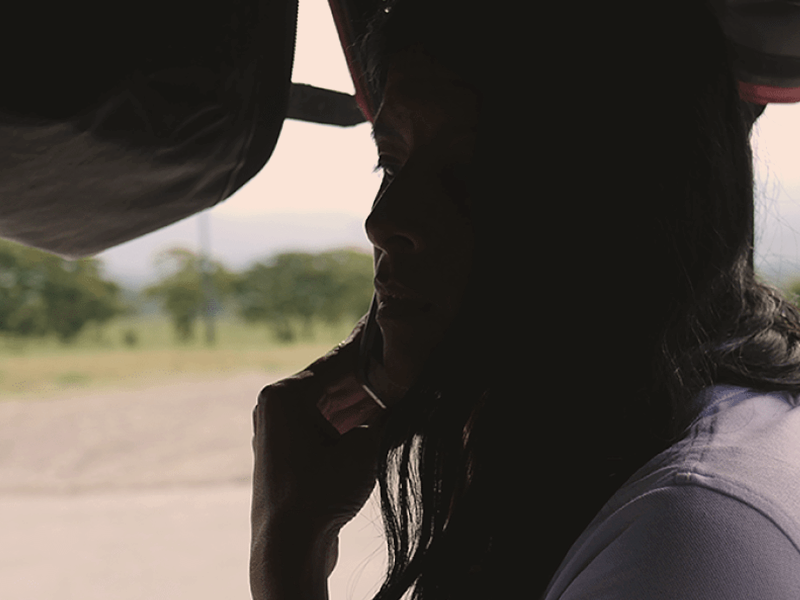

(in Spanish)
Fighting human trafficking in Colombia: “No Más Trata”
The “No Más Trata” (no more trafficking) project led by LWBC aims to strengthen the capacities of the Defensoría del Pueblo (Office of the Ombudsperson) and justice actors involved in the fight against human trafficking in Colombia. Find out more about this project.
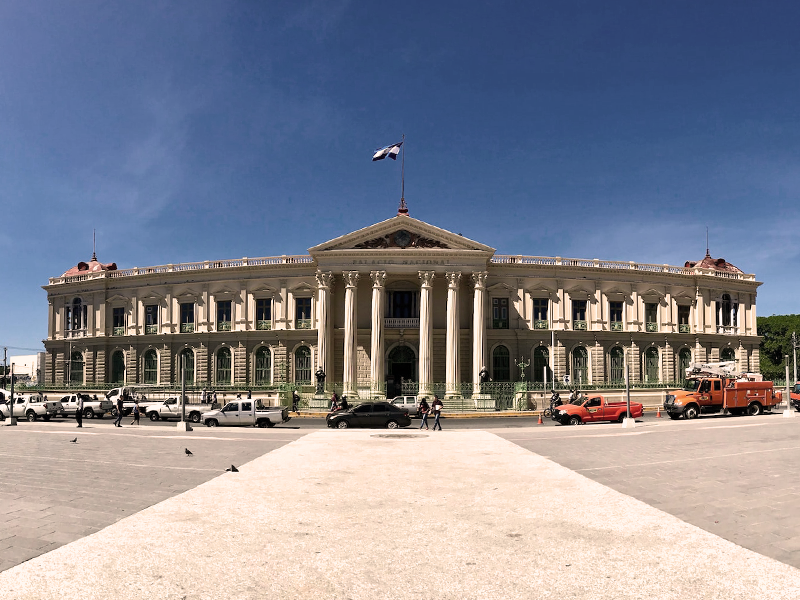

(In Spanish)
International standards on gender-based violence
The project "Better Access to Justice for Victims of Gender-Based Violence (Unid@s)" aims to increase access to justice for victims of gender-based violence in El Salvador, particularly women and girls, by enabling them to implement their rights more effectively. As part of this project, Lawyers Without Borders Canada organized a forum on international standards on gender-based violence on November 9, 2021.
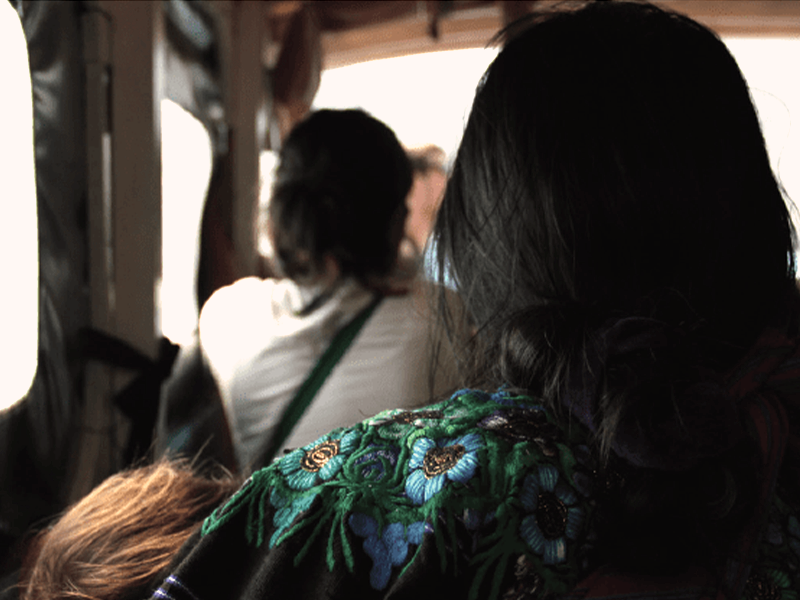

(in Spanish with French captions)
Combatting human trafficking in Guatemala
In Guatemala City, the number of people sexually exploited or trapped in forced labour is estimated at around 10,000. With support from our teams, Alianza Guatemala and El Refugio de la Niñez are working hard to bring change.
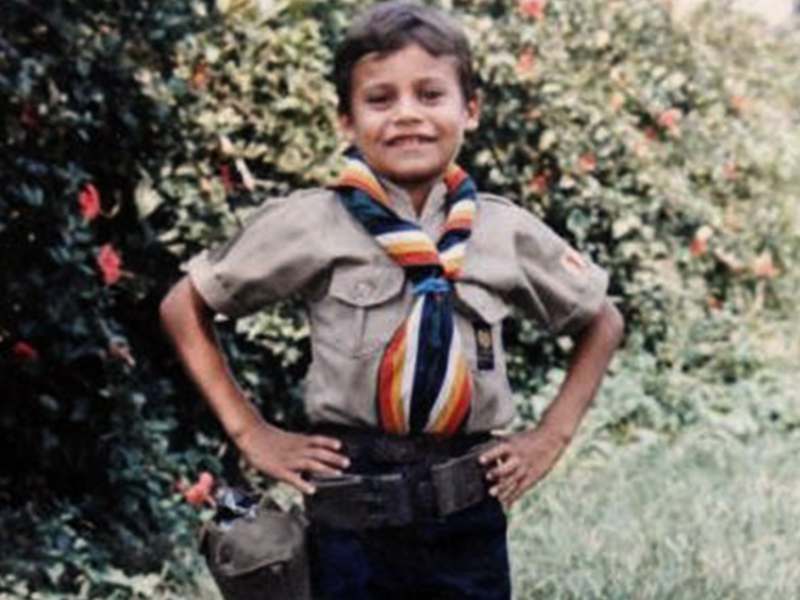

(in English with French captions)
Survivor Ramiro Osorio Cristales Demands Justice for the Massacre of His Village
On December 7, 1982, the population of Dos Erres was decimated by the Guatemalan armed forces. More than 200 people, including children, were brutally murdered. Ramiro Osario Cristales, then aged only 5, survived the massacre. He is now a Canadian citizen, and LWBC is helping him seek justice.
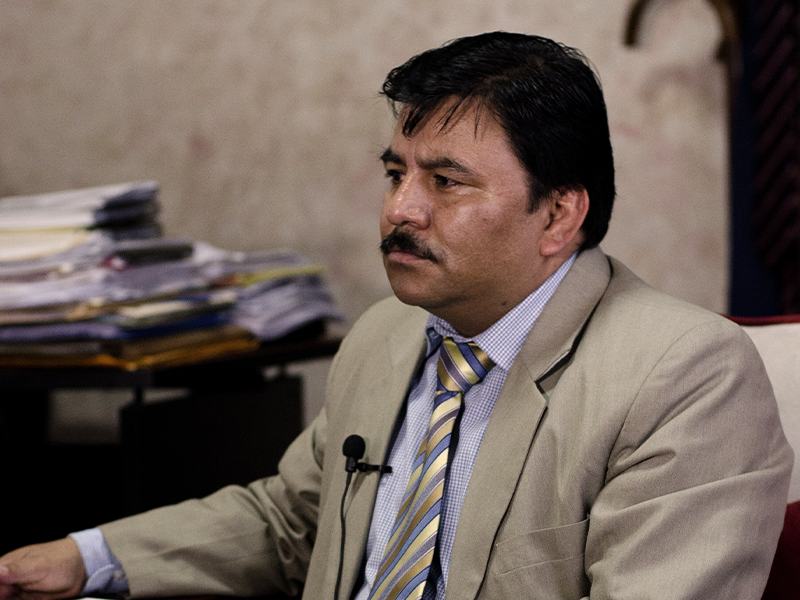

(in Spanish with French captions)
Fighting impunity in Guatemala: determination opens the door to justice
The armed conflict in Guatemala lasted from 1960 to 1996. Twenty-five years down the line, the number of deaths resulting from the conflict is still largely unknown. 93% of serious human rights violations committed over those 36 years have been imputed to the regular armed forces. 83% of victims were indigenous. The Director of Bufete Jurídico de Derechos Humanos, one of LWBC’s partners and one of the frontline organizations in the fight against impunity for human rights violations in Guatemala, shares part of his story and the story of those fighting for justice.
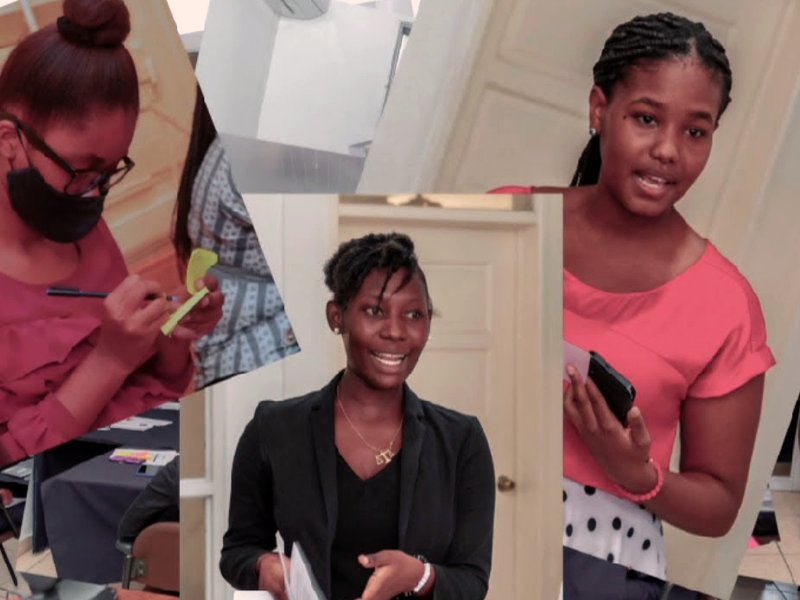

(in French)
In Haiti, youth are becoming human rights defenders
With the aim of shaping the next generation of actors engaged in defending human rights, four Haitian youth were presented with an opportunity of exploring professional life as a legal practitioner in our Port-au-Prince office. This video relates their experience.
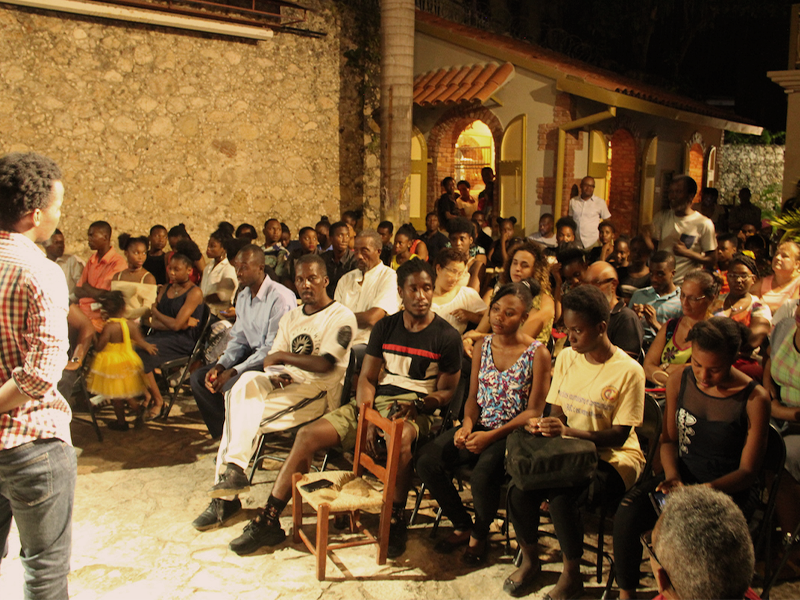

(in French)
Preserving memory of the Duvalier dictatorship in Haiti
In 2018, with support from LWBC, a company of Haitian actors embarked on a tour to raise awareness on the duty of remembrance. The play, called “32 ans après” (32 years later) is particularly effective in raising awareness on the reality of the crimes committed during the Duvalier regime.


(In Spanish)
A new generation of lawyers is joining the defense of human rights in Honduras
Adela Moncada, Ana Larissa Velásquez, José Ariel Osorto, Cristine Iveth Castillo, Katia Mejía and Abner Brito are six young law students who tell us what they learned during their internship with Semillero de Justicia, a Lawyers Without Borders Canada (LWB) initiative to train a new generation of human rights defenders.


(in French)
In Mali, mentalities and customs are slowly changing
This video takes viewers to Bamako to meet with youth who have grown up to become role models and sources of inspiration in their respective communities. Listen to them talk about how they find meaning in the peace and reconciliation project they’re involved in. Listen to their beliefs, to their hopes, and their pride in being devoted and committed to the future of their country.
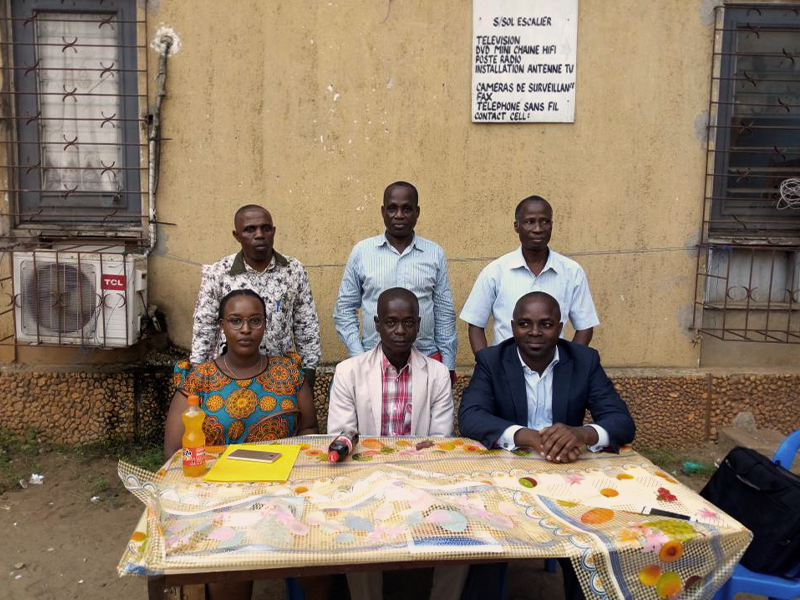

Video Marilynn Rubayika (in French)
Inspiring courage: volunteer cooperation according to Marilynn Rubayika
Volunteer cooperation is a transformational experience for everyone, volunteers and others alike. As a volunteer in Cote d’Ivoire, Marilynn Rubayika experienced this for herself when she inspired a female legal practitioner to pursue her calling.
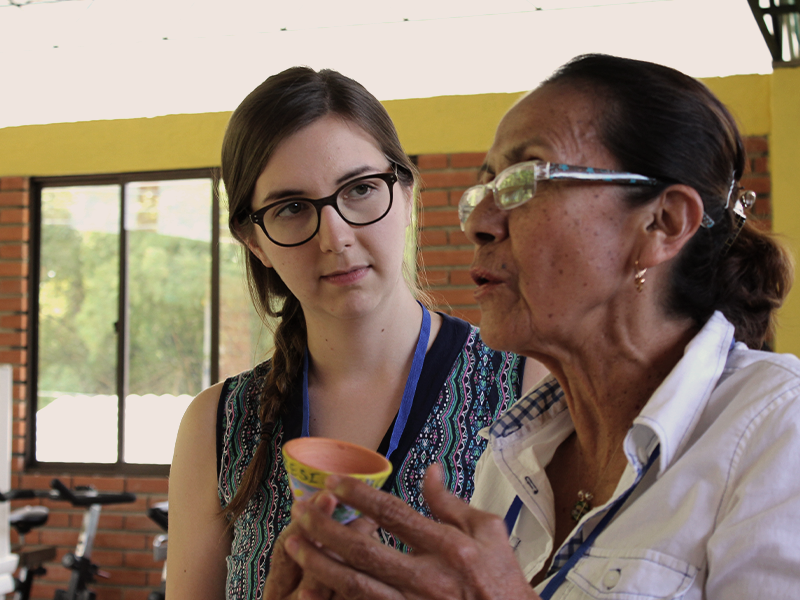

Video Isabelle Boisvert-Chastenay (in French)
Feminism-driven peacebuilding: our colleague Isabelle Boisvert-Chastenay describes her vision of cooperation
This video relates the experience of Isabelle Boisvert-Chastenay, who took part in the efforts of LWBC partner Corporación Humanas in supporting peace processes by providing capacity building to women and girls in territories that suffered the most severe impacts of the Colombian armed conflict.
Excerpt of the financial statements audited by Malette
For the year ended March 31, 2022
2022
2021
Income
Donor contributions to programs
$13,621,440
$11,637,693
Contributions in the form of services provided
485,993
924,345
Private funding
178,283
237,225
Public funding
419,291
1,172,776
Other
34,349
14,236
14,739,356
13,986,275
at March 31, 2021
2022
2021
Assets
Current assets
$6,894,963
Cash and cash equivalents
134,702
Debtors
473,752
Advances to project - partners
26,762
Prepaid partner (project) expenses
7,530,179
Fixed tangible assets
78,084
$7,608,263
Liabilities
Current liabilities
Operating liabilities
433,787
Deferred contributions
4,819,052
5,252,839
NET ASSETS
2,355,424
$7,608,263
2022
2021
Expenses
Programs
12,238,855
10,430,593
Contributions in the form of services provided
485,993
924,345
Other projects and activities (development, awareness-raising and communication, administration)
1,966,074
2,363,951
Financing activities
-
-
Depreciation on fixed tangible assets
22,156
14,444
14,713,078
13,733,333
Excess of revenue over expenses
$26,278
$252,942
STATEMENT OF CHANGES IN NET ASSETS
for the year ended March 31, 2022
| Unrestricted | Contingency reserve | Invested in tangible fixed assets | 2022 | 2021 | |
|---|---|---|---|---|---|
| BALANCE, beginning of period | 322 340 $ | 1 955 000 $ | 78 084 $ | 2 355 424 $ | 2 102 482 $ |
| Excess (deficiency) of income over expenses | 48 434 $ | - | (22 156) | 26 278 | 252 942 |
| Investments in tangible fixed assets | (35 853) | - | 35 853 | - | - |
| Internally restricted | (250 000) | 250 000 | - | - | - |
| BALANCE, end of period | 84 921 $ | 2 205 000 $ | 91 781 $ | 2 381 702 $ | 2 355 424 $ |
at March 31, 2021
2022
2021
Assets
Current assets
$5,918,741
$6,894,963
Cash and cash equivalents
372,714
134,702
Debtors
361,307
473,752
Advances to project - partners
30,530
26,762
Prepaid partner (project) expenses
-
-
6,683,292
7,530,179
2022
2021
Fixed tangible assets
91,781
78,084
$6,775,073
$7,608,263
Liabilities
Current liabilities
Operating liabilities
453,504
433,787
Deferred contributions
3,939,867
4,819,052
4,393,371
5,252,839
NET ASSETS
2,381,702
2,355,424
6,775,073 $
7,608,263 $





